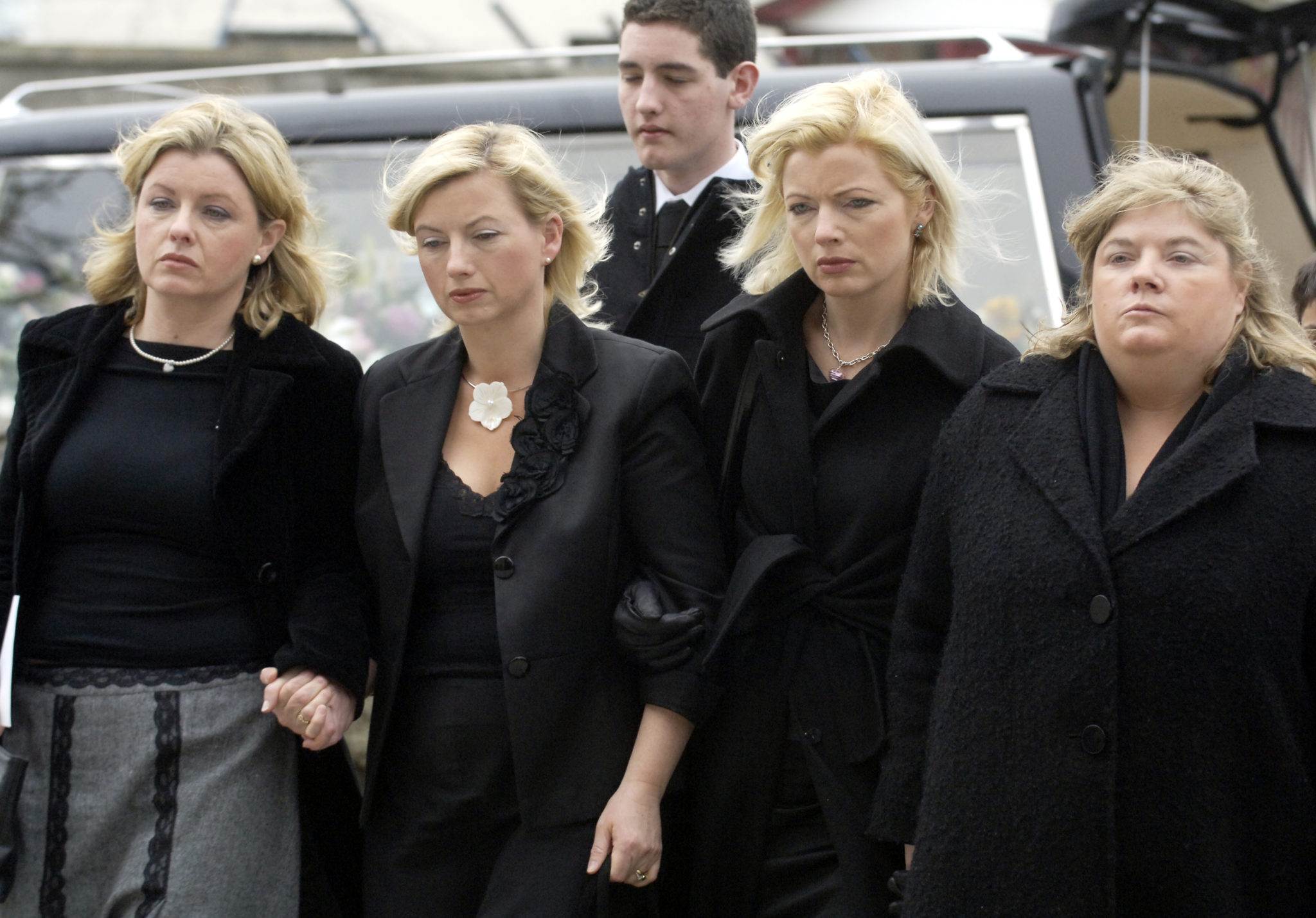The sister of a Dublin woman who was brutally murdered by her husband has said he shouldn’t be eligible for parole unless he shows remorse.
Brian Kearney was convicted of murdering his wife Siobhan in February 2006 at their home in Goatstown.
He will become eligible for parole in a matter of weeks after serving 12 years of his life sentence for her murder.
On Newstalk Breakfast this morning, Siobhan's sister Aisling McLaughin said he has never shown remorse for his crimes.
"Time-wasting"
"You can call me naïve but as far as I am concerned, the basis for any type of parole is that there is an acknowledgement, that there is an admission of some sort; that there is rehabilitation, that there is remorse,” she said. “There is none of that [here].
“So why there is even a process for an individual who hasn’t expressed any of those elements? For me, it is just time-wasting.
“Surely that has to be the basis.”
 McLaughlin Sisters Caroline, Niamh, Brighid and Aishling at the funeral of their sister Siobhán, 12-03-2006. Image: RollingNews
McLaughlin Sisters Caroline, Niamh, Brighid and Aishling at the funeral of their sister Siobhán, 12-03-2006. Image: RollingNewsShe said Siobhan was in the process of “trying to leave a very unhappy marriage” when Kearney murdered her.
“I suppose, one of the things that keeps coming back to me is there was a moment where - I know this from the court case - when he attacked Siobhan, she was unconscious and there was a time there where he could have changed his mind and said, ‘what am I doing here, I’ll get an ambulance’, you know, ‘I’ll do something’ – but he didn’t do that.
“He went further and he strangled her with flex. Then he went further and he set it up to look like […] suicide.
“So, there are three pretty awful steps here that were taken by this individual.”
 File photo of Brian Kearney arriving at the Four Courts in Dublin, 04-03-2008. Image: Leon Farrell/RollingNews
File photo of Brian Kearney arriving at the Four Courts in Dublin, 04-03-2008. Image: Leon Farrell/RollingNewsAisling said the very prospect of a parole hearing is re-traumatising for everyone who loved Siobhan.
“It’s absolutely horrific,” she said. “It just leaves you with a pit in your stomach.”
She accepted that there has been some improvements to the system in recent years – with 2021 legislation increasing the minimum length of time that must be served in prison from seven years to 12.
Parole
The legislation also established a new Parole Board that victims of crime are able to make submissions to before decisions are made.
Aisling said the changes do not go far enough.
“I know there has been some change here, but I think it is a total fallacy to say he is making an application based on some change in his behaviour or that he has been rehabilitated or has accepted some sort of responsibility,” she said. “That hasn’t happened.
“He is offered an opportunity every two years to do this and he has to do nothing except sit on his hands and everybody else has to run around and get all the reports together.
“So, I think that is very unfair.”
Life-sentence
Prisoners can only be granted parole if the board is “satisfied the prisoner does not pose an undue risk to the public, that he or she has been rehabilitated and that it is appropriate in all the circumstances to release him or her on parole”.
In May of last year, Justice Minister Helen McEntee told the Oireachtas that the average length of time served by a life-sentence prisoner is currently 20 years.
Main image is a split-screen showing a file photo of Siobhan McLaughlin and Aisling McLaughlin leaving the Four Courts after Brian Kearney was found guilty.









